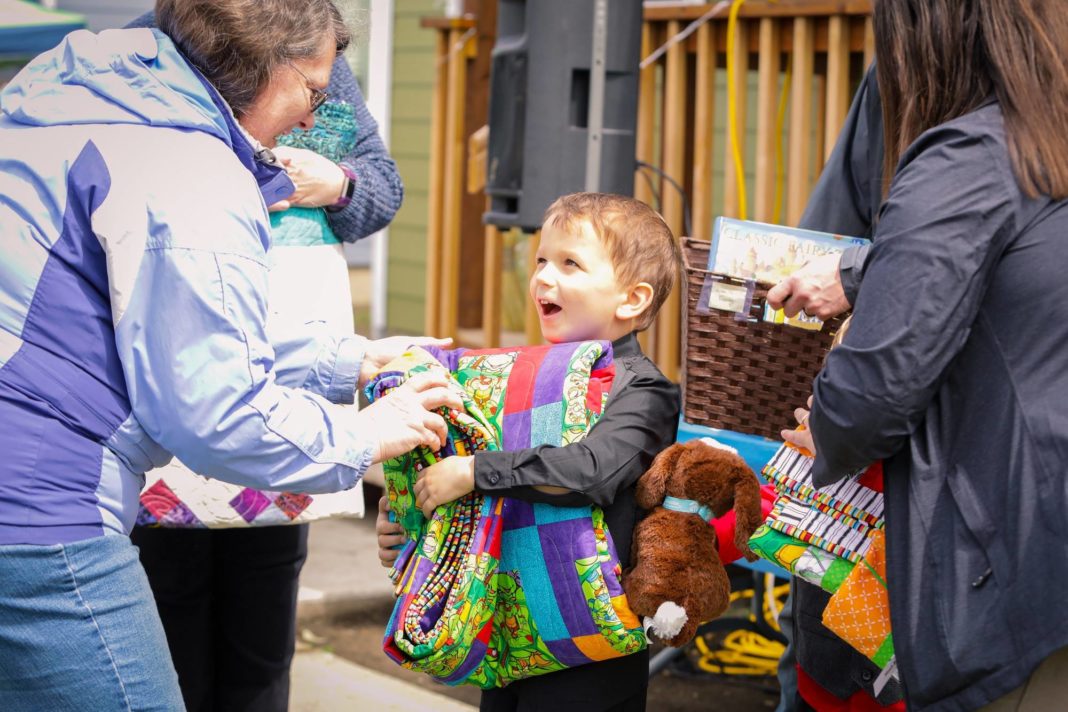The cost of living in Thurston County is higher than the national average. This leaves many low income and working-class families in a pit of hopelessness, feeling as though they will never reach financial stability due to housing costs. “We don’t have enough affordable housing, and we know that,” says Ally Upton, director of housing for South Puget Sound Habitat for Humanity. “Rent is on the rise and there are no signs of it slowing down.”
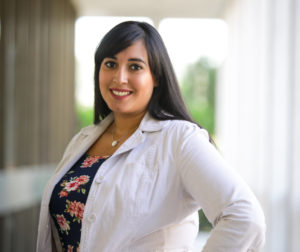
The homeownership program offered by Habitat for Humanity provides a solution for that very large problem. “Our program is a pathway to homeownership that is a lot more affordable than the market rate,” Ally explains. “Homeowner rates are going up, wages are not. Pathways to homeownership seem to be getting harder and harder.”
Habitat’s homeownership program allows community members who don’t consider homeownership a possibility, the ability to make that possibility a reality. “If the government would qualify you as low income, or if you receive any government services, you automatically qualify for our program,” Ally shares.
Habitat does not give out free homes. Homeowners apply for a special zero-interest rate home. As well, Habitat sells their brand-new homes at a reduced cost. “If one of our houses appraises at $300,000, we sell it to our homeowners for around $150,000. It brings the entire purchase price from something that only the upper middle class could afford to something that the working-class can afford,” Ally shares. “This means a mortgage is between $600 and $900 a month for a brand-new home, which is less than most rent in Thurston County.”
However, the path to homeownership isn’t easy or quick. “As a tradeoff, the homeowners put in sweat equity,” Ally shares. 500 hours per adult in the household to be exact. “This helps offset the cost of labor, which is one of the reasons we can sell at such a discounted cost.”
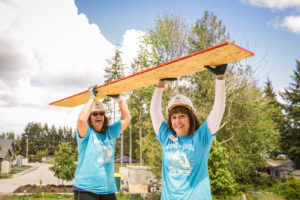
500 hours may seem like a lot, especially since these homeowners have full-time jobs. But the staff at Habitat works tirelessly to make the sweat equity doable, removing barriers like transportation and childcare that might hinder homeowners from completing their volunteering. “This is a partnership with Habitat,” Ally emphasizes. “It’s not something that’s given to you and it isn’t easy. There will be sacrifices. But in the end, it is totally worth it.”
So, What’s the First Step in Applying?
The first step is to visit the South Puget Sound Habitat for Humanity website and fill out their program interest form. From there, potential homeowners will have the opportunity to enroll in a quarterly interest meeting. “Here we highlight the process,” Ally explains, “we don’t go into all of the details, we give an overview of what the program generally looks like, what partnering with Habitat means, and what you can do now to prepare to apply.”
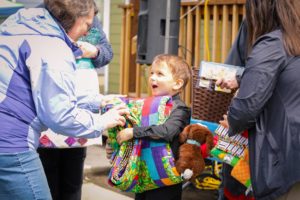
This isn’t some simple application to fill out. Potential homeowners need to be prepared to submit six months of financial documents – from pay stubs and bills to Netflix payments and monthly subscription services.
One of the best things applicants can do is to share their stories about why they need affordable housing, show that they are able to budget well, and have good credit.
If budgeting or credit are an issue for applicants, Habitat is working to remove those barriers as well. “We are going to start offering budgeting, credit and community resource classes,” Ally excitedly discloses. “Using some of our community partners like Anchor Bank and even our own board members, we are going to do everything we can to help applicants be prepared. So even if you don’t qualify now, you may in a year.”
If someone is interested in homeownership through Habitat but finds that they don’t qualify, that doesn’t have to be the end of the relationship. “Even if you don’t income qualify for us, we would probably have another option for you,” Ally clarifies. “Between non-profits and banks, we have a lot of knowledge in the office about how to help. It’s no longer a ‘no’ but more of a ‘here is a contact of where you can get help.’”
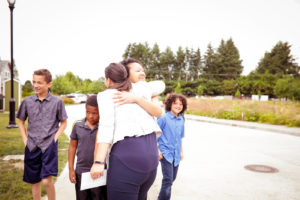
For those that go through the work of attending the orientation and collecting all the paperwork needed for the application, they should remember that the application window is short. “If you’re at all even thinking of applying, start collecting those documents now!” Ally encourages all interested parties.
“These homes come with sweat and tears,” Ally finishes with a smile, “But we’re here as cheerleaders and supporters. Volunteer until you’re ready. Make sure you’re committed. And give us a call.”
The next Habitat homeownership orientation will happen between January and March of 2019, with the next application phase opening in 2019.
For more information or to fill out an application, visit the South Puget Sound Habitat for Humanity website.
Sponsored







































